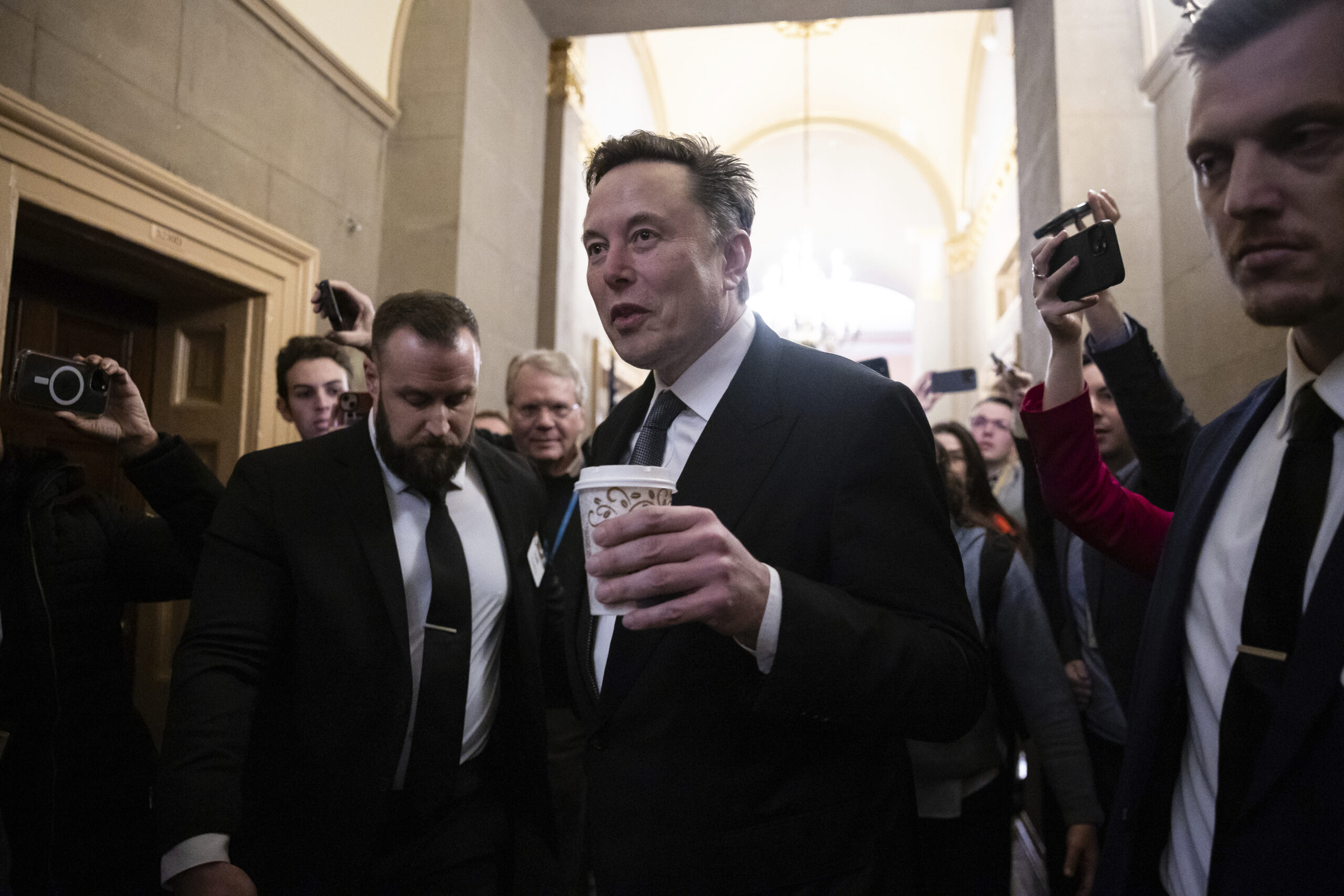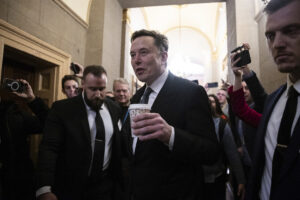Politics
Trump’s family is betting big on crypto — and it’s not difficult to see why
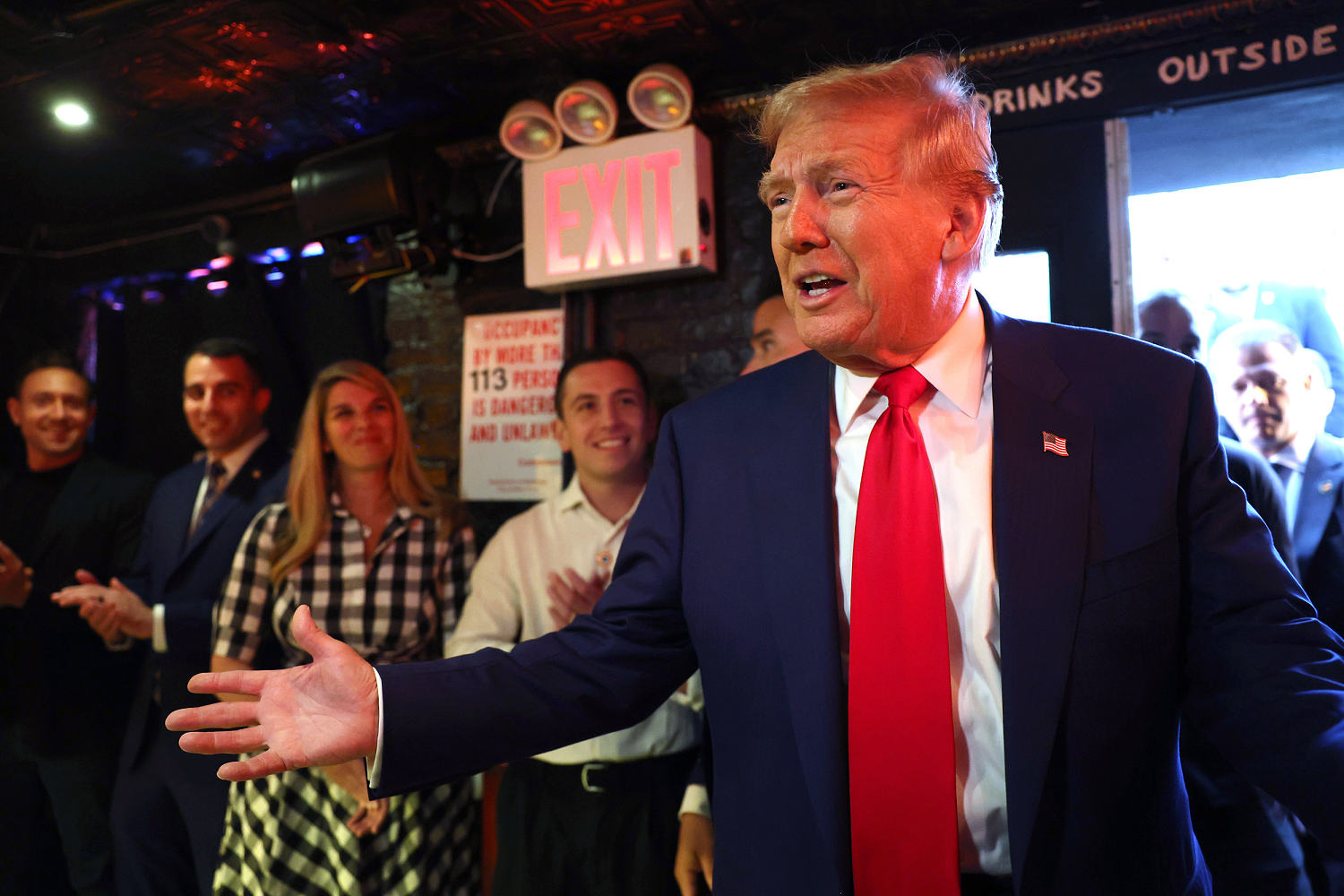
Former President Donald Trump in a livestream on X this past Monday announced his family’s latest project: World Liberty Financial, which intends to function as something of a crypto stock exchange.
Trump’s embrace of this emergent, often scandal-plagued sector isn’t a particularly novel development. In fact, it’s highly predictable, as for roughly a decade crypto’s underlying premises have relied, to a surprisingly heavy degree, on right-wing political thought.
The relationship between crypto and the right stems in large part from how crypto seeks to shift financial transactions beyond the purview of centralized, democratic systems. The right-wing nature of this pivot has been noted by everyone from left-leaning scholars and academics to right-leaning venture capitalists like Marc Andreessen, who has observed that crypto is “quite literally right-wing tech that is far more aggressively decentralized and far more comfortable with entrepreneurialism and free voluntary exchange.”
For roughly a decade crypto’s underlying premises have relied, to a surprisingly heavy degree, on right-wing political thought.
I came around slowly to acknowledging this political alignment. I graduated college directly into the housing crisis, when distrust in banks and the politics surrounding them reached a critical mass thanks to movements like Occupy Wall Street. Cryptocurrencies — Bitcoin specifically — arrived at this moment, too. Like countless others of all political affiliations, I was curious about cryptocurrencies, eager to entertain philosophies and technologies that promised better answers for how to distribute wealth and, by extension, money itself.
Intriguing projects would pop up in sectors like journalism and health care, often more related to the blockchain than crypto. And yet, the crypto critiques from this initial era have outlasted the majority of these projects themselves. When these projects failed, the autopsies did not reveal oh-co-close brushes with new liberating financial processes but, rather, predatory practices that sought to get marginalized groups “drinking the crypto Kool-Aid.”
If Trump’s embrace of crypto seems like some novel development, consider the very title of the late, brilliant David Golumbia’s book, published weeks before the 2016 presidential election, “The Politics of Bitcoin: Software as Right Wing Extremism.” For the remaining years of his life, Golumbia would argue that, messy and unsexy as democratic and financial processes may be, they were more trustworthy than cryptocurrencies, which sought to sidestep such regulatory processes entirely. Moreover, Golumbia regularly argued that “The economic framework on which cryptocurrencies depend emerges from right-wing and often antisemitic conspiracy theories about the nature of central banking.”
I found simpler, less technical perspectives from writers like Stefan Eich, a political theorist and author of what for me was a crucial article“Old Utopias, New Tax Havens: The Politics of Bitcoin in Historical Perspective.” Eich’s basic argument is convincing and plainly stated, “The attempt to remove money from political control is itself a supremely political act that raises profound questions of legitimacy.”
What a surprise, then, that an entity founded upon removing one’s assets and actions from political scrutiny would wind up in the Trump universe. What a surprise that Trump would eventually come around to a sector full of political acts that raise, in Eich’s words, “profound questions of legitimacy.”
Since the World Liberty Financial announcement, there has been a rush to compare the Trump family’s new crypto venture to the various steaks and universities that dot the ex-president’s resume of shady financial pursuits. The juxtaposition is apt, and it is not difficult to see how World Liberty Mutual could be yet one more way to funnel MAGA cash into Trump’s pocket. As noted crypto critic Molly White wrote ironically on X: “equitable access to finance is when we screw you all over equally.”
Personally, I think the Supreme Court’s immunity ruling from July is a more apt comparison than his roster of tacky ripoff products. The court essentially said presidents are immune from prosecution, and crypto has almost no regulatory oversight. Voila!
Many scholars saw this coming. For a while, cryptocurrencies have been called a solution in search of a problemand they now seem to have been useful in answering this question: what sector has a rabid base and a right-wing lean that could help grant an authority figure the ability to “remove money from political control?”
Problem solved.
Patrick McGinty
Patrick McGinty’s novel about crypto, Town College City Road, will be published in the fall of 2025 by The University of Wisconsin Press.
Politics
Democrats zero in on Musk as a way to attack Trump
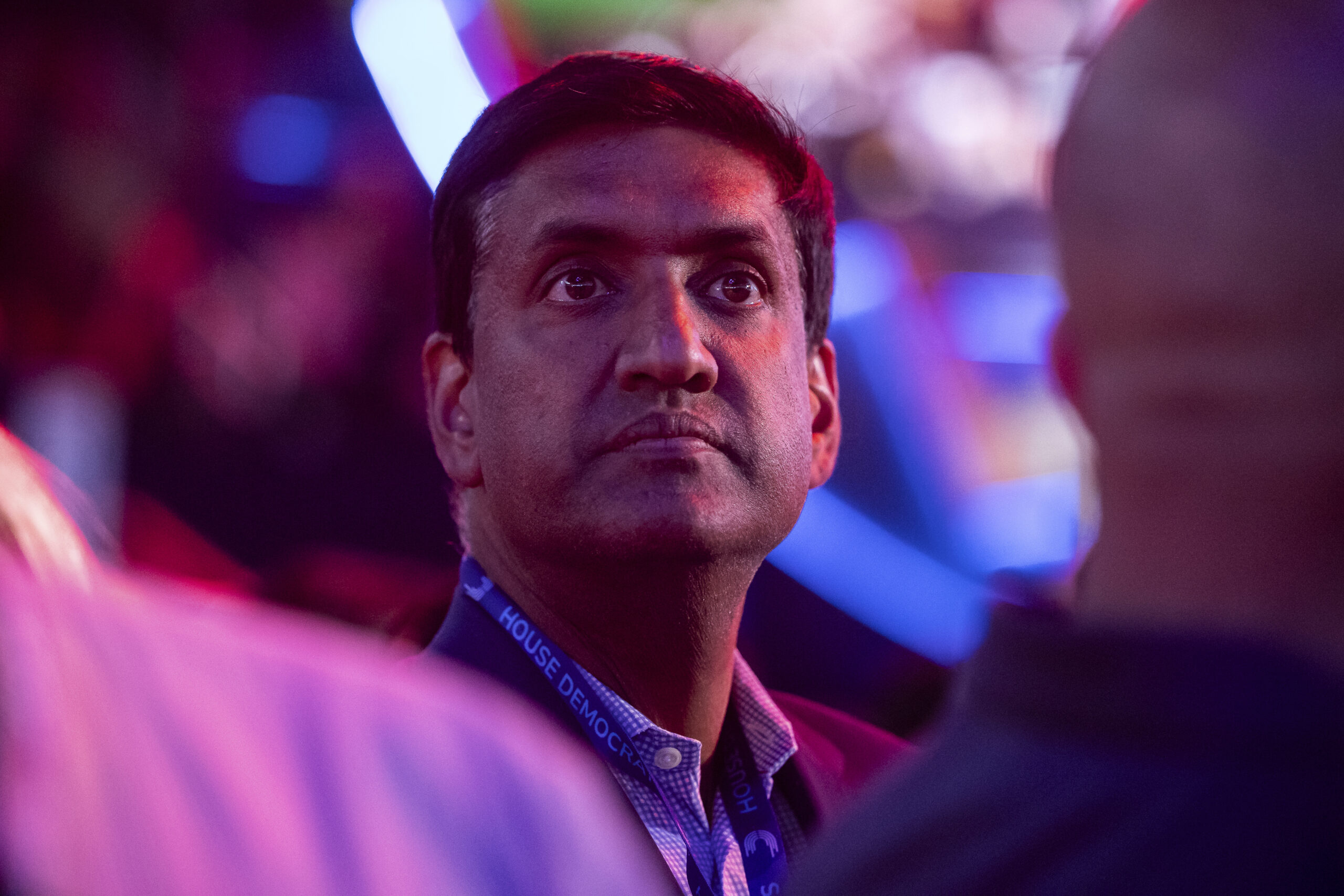
Democrats are starting to wake up and sketch out a plan to help them win back the working class: Turn the world’s richest person into their boogeyman.
They’ve set their sights on holding Elon Musk to account. Armed with new polling showing Musk’s popularity in the toilet, key Democratic leaders are going after the top Trump adviser who is dismantling the federal government. They are attempting to subpoena him and introducing legislation to block him from receiving federal contracts while he holds a “special” role leading Trump’s cost-cutting crusade.
In a sign of how toxic Democrats believe Musk is, battleground Rep. Jared Golden (D-Maine) called Musk an “unelected, weirdo billionaire” and said he has “been getting a lot of calls over the past few days” about him. Golden is a moderate who represents Trump country.
Even Rep. Ro Khanna (D-Calif.), who represents Silicon Valley and has had a relationship with Musk for years, is distancing himself from him. Khanna posted on X on Wednesday that Musk’s “attacks on our institutions are unconstitutional.” Khanna previously likened Musk to Franklin D. Roosevelt’s “dollar-a-year men,” the corporate leaders who helped the government mobilize for WWII, and said he texts with him.
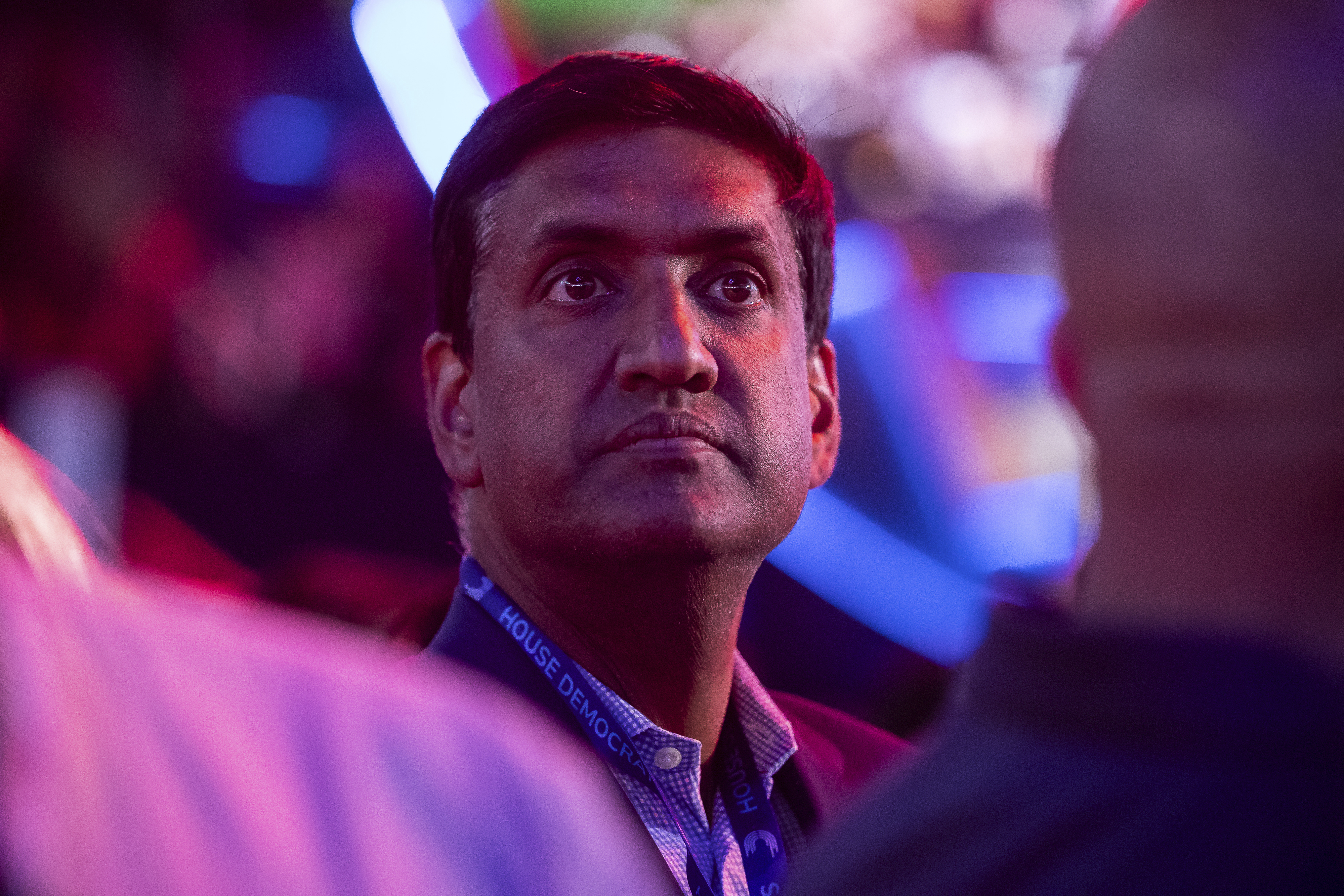
Democrats are also protesting him in Washington, making the calculation that the idea of an unelected billionaire wreaking chaos on the bureaucracy will be unpopular with voters. And they have some data fueling their efforts.
New internal polling, conducted on behalf of House Majority Forward, a nonprofit aligned with House Democratic leadership, found Musk is viewed negatively among 1,000 registered voters in battleground districts. Just 43 percent approve of him and 51 percent view him unfavorably. The poll, conducted by the Democratic firm Impact Research and completed between Jan. 19 to 25, also found that Musk evoked strong negative feelings. Of the 51 percent who disapproved of him, 43 percent did so strongly.
The survey isn’t a one-off, either. An Economist/YouGov poll published on Wednesday also found Musk’s approval rating underwater, 43 percent favorable to 49 percent unfavorable.
In the Democrats’ internal polling, pollsters asked respondents for their thoughts on “the creation of a government of the rich for the rich by appointing up to nine different billionaires to the administration,” and found 70 percent opposed with only 19 percent in support — a stat that suggests Democrats have landed on a message that could gain traction with swing voters.
That data and focus groups held by House Majority Forward helped bring attacks on the administration into focus: Democrats “shouldn’t chide Musk, Trump, and others for being rich,” the group wrote, but point out Musk’s conflicts of interests as head of DOGE and note that he could undermine key safety net programs to enrich himself at the expense of American taxpayers.
“Participants laud Musk’s business acumen and aren’t opposed to the ideals of DOGE,” HMF found. But “Musk’s relationship with Trump – who they view as inherently pro-big business” makes them wary that billionaire’s cuts “could include programs such as Medicare, Medicaid, and Social Security.”
Politics
House Democrats try, and fail, to subpoena Musk
Democrats on the House Oversight Committee moved to subpoena tech billionaire and Trump ally Elon Musk at a hearing Wednesday — and one Democrat was conspicuously missing from the vote, Rep. Ro Khanna of California, who represents Silicon Valley and has a longtime relationship with the billionaire…
Read More
-

 The Josh Fourrier Show3 months ago
The Josh Fourrier Show3 months agoDOOMSDAY: Trump won, now what?
-
Economy3 months ago
Fed moves to protect weakening job market with bold rate cut
-
Economy3 months ago
It’s still the economy: What TV ads tell us about each campaign’s closing message
-
Economy3 months ago
Harris dismisses Trump as ‘not serious’ on the economy in BLN interview
-
Politics3 months ago
Donald Trump wants Americans to hate Kamala Harris — but he’s failing
-

 Politics3 months ago
Politics3 months agoDemocrats express concern over Gaetz pick
-
Economy3 months ago
Biden touts economic gains, acknowledges a long way to go
-

 Politics3 months ago
Politics3 months agoRFK Jr.’s bid to take himself off swing state ballots may scramble mail-in voting


